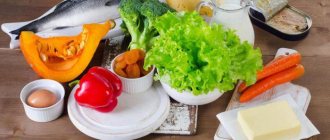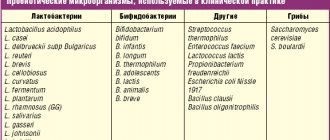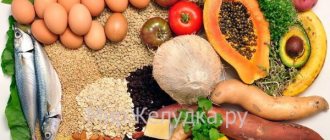Snacks on the go, monotony of the diet, lack of fresh vegetables in the diet, low mobility - this is just the tip of the iceberg of harmful factors that affect the normal functioning of the intestines. The consequence is constipation, which poisons life literally and figuratively. Proper nutrition and diet for constipation is an element of their treatment.
Types of constipation
Medicine distinguishes between two types of constipation - atonic and spastic. The cause of atonic is a violation of intestinal motility - contraction of the muscle fibers of its walls, which move the contents to the outlet.
Spastic constipation has a different nature. It is caused by a spasm in the intestines, as a result of which its walls squeeze the feces and prevent them from moving further. A different diet is used to treat the two types.
Knowing their symptoms will help you properly build a diet and alleviate the condition, and perhaps completely get rid of the unpleasant syndrome.
Symptoms of spastic constipation:
- cramping abdominal pain;
- mucus in stool during bowel movements;
- chronic fatigue;
- increased irritability.
- Associated symptoms are pale abdominal skin, headaches and muscle pain.
Symptoms of atonic constipation:
- very dense stool;
- increased content of gases in the intestines;
- decreased appetite;
- signs of intoxication (headaches, fever, change in skin tone, etc.).
Both types of constipation cause pain in the rectum during bowel movements.
Diet features
General principles of dietary nutrition:
- 5 – 6 meals a day in small portions;
- food should be warm or cold;
- absence in the diet of foods that irritate the stomach and intestines (spicy and fried foods);
- drinking regime - during the day you need to drink at least 1.5 liters of water;
- only boiled, steamed and baked food without a hard crust;
- avoiding alcohol (it dehydrates the body and aggravates the condition).
Untimely bowel movements cause varying degrees of poisoning due to the inability to promptly get rid of waste from the body. Therefore, diets for constipation should include foods rich in vitamins and minerals.
The daily menu should include foods rich in potassium and magnesium. These minerals are especially needed for atonic constipation. Potassium helps normalize peristalsis, and magnesium improves the conductivity of nerve fibers.
It is important to know which foods cause constipation and completely exclude them from your menu.
Foods that cause constipation
This list may seem a little surprising, but, nevertheless, people prone to constipation should avoid the following foods:
- milk (contains casein and no fiber);
- kefir older than two days;
- any fatty meat, especially in combination with pasta;
- baked goods, fresh baked goods and confectionery;
- rice in any form;
- jelly;
- mucous porridges (except oatmeal);
- fresh berries (cherries, lingonberries and blueberries), fruits (banana, pear and dogwood);
- all flour with filling - dumplings, dumplings or pies.
A diet for constipation in adults should also exclude foods that cause increased gas formation, fermentation and putrefactive processes in the intestines:
- legumes (with the exception of lentils and peas soaked before cooking);
- fresh cabbage;
- carbonated drinks;
- strong tea, cocoa and coffee;
- beer and any other alcohol;
You should not eat a large amount of bran at one time.
Meals for constipation in adults should not contain a large amount of vegetables and a small amount of protein foods (meat and dairy products).
Authorized Products
The diet for different types of constipation includes the same set of permitted foods, only the method of preparing them differs.
Products: For atonic constipation For spastic constipation
| Wholemeal bread | + | In the form of crackers |
| Vegetable and meat soups with “light” broth | + | Preferably pureed soups with vegetable broths |
| Lean meat | Anything cooked in large pieces | Poultry or pork only in minced form |
| Boiled white fish | + | In the form of cutlets |
| Fresh vegetables: • beets; • carrot; • tomatoes; • cucumbers; • leaf salads. | Preferably coarsely chopped. Carrots - in limited quantities. | Boiled or pureed |
| Potato | Limited | Limited |
| Fruits and berries, except those prohibited | + | + |
| Butter and vegetable oil | + | + |
| Low-fat cheeses | + | In limited quantities |
| Eggs (boiled and steamed omelet) | + | + |
| Pasta made from durum wheat | + | + |
| Porridge cooked in water | + | + |
| Semolina | — | + |
| Fermented milk products: • fresh kefir; • sour cream; • curdled milk; • low-fat cottage cheese. | + | For spastic constipation, you can add cream |
| Dried fruits, especially prunes | + | + |
| Vegetable juices with pulp | + | + |
| Sea kale | + | + |
| Green peas (small quantities) | + | Only in the absence of flatulence |
Laxative products for constipation:
- ground peas into flour (take 1 teaspoon per day);
- oatmeal (but not flakes, but whole grain or oatmeal);
- steamed flax seed (eaten alone or added to dishes);
- peaches, tangerines and apples;
- prunes;
- zucchini and pumpkin;
- quail eggs;
- vegetable oils (sunflower, flaxseed, olive).
These foods should be consumed as often as possible until the stool returns to normal.
Diet No. 3
It is designed to treat atonic constipation and is a balanced nutritional system that fully satisfies the body's energy needs.
Energy and nutritional value of the daily diet for an adult:
- calorie content – 2500 – 2800 kcal;
- proteins – 90 g (mostly vegetable);
- fats – 90 g (of which 2/3 should be of animal origin);
- carbohydrates – 400 g (should include a large amount of fiber);
- salt – no more than 15 g.
In this case, food should be aimed at activating intestinal motor function and softening stool.
Diet No. 4
It helps not only in the treatment of spastic constipation, but also in the general improvement of the gastrointestinal tract, especially in the stage of exacerbation of diseases of the digestive system. Its peculiarity is the consumption of food in a softened state, the inclusion of mucous decoctions from cereals in the diet.
Energy and nutritional value of the daily diet for an adult:
- calorie content – 2000 – 2100 kcal;
- proteins – 100 g (mainly animals);
- fats – 70 g (of which 2/3 should be of animal origin);
- carbohydrates – about 250 g;
- salt – no more than 10 g.
The goal of the diet is to soften stool for better passage through spasmodic areas of the intestine.
How to eat for women
Women most often suffer from constipation during pregnancy and after childbirth. The diet for constipation in women during these periods should include exclusively healthy foods aimed at normal childbearing.
After childbirth, the menu for constipation should not contain products that can harm the baby during breastfeeding.
As a rule, doctors recommend that pregnant women consume more fermented milk products, spend more time in the fresh air and remember to move, and eat at least 6–7 times a day in small portions.
A nursing mother should introduce laxative products against constipation into the menu with caution, monitoring the baby’s condition. In general, nutrition for constipation should be structured in accordance with general recommendations for adults.
Children's diet
Often they can be caused by parents allowing their children a lot of sweets, fast food and carbonated drinks.
The first thing to do when a child is constipated is to eliminate unhealthy foods. Products that help children with constipation are the same as for adults. Sweets that are not allowed in the diet can be replaced with dried fruits. It is imperative to give your child fish oil. Freshly squeezed fruit and vegetable juices help a lot.
What adults are allowed to eat cannot always be used in baby food, especially for babies. Food for them during constipation should contain homemade yogurt with fresh berries (you can grind everything in a blender), homemade tender cottage cheese, oatmeal cooked in water with the addition of milk.
It is better not to give prunes to children; compote is more suitable for them.
Foods that cause constipation in adults should also be excluded from children's menus.
It is better to consult a pediatrician about how to properly feed a child with constipation. He knows your child and will be able to give more specific recommendations. To prevent constipation in the future, teach your child to drink a glass of kefir at night. It will maintain the intestinal microflora in normal condition.
Astringent and irritating fruits and vegetables
Eating unripe fruits can provoke constipation, because... they have astringent properties due to their high starch content. Constipation is often caused by green bananas. The body will need a lot of effort to digest the starchy compound, so the act of bowel movement is disrupted. Fresh vegetables and fruits with irritating properties also lead to increased fermentation in the intestines, which interferes with bowel movements. Table of vegetables and fruits that cause constipation:
Article on the topic: Why does a child often bleed from the nose?
| Astringent plant food | Products with irritating properties |
|
· |
Laxative products for constipation in adults
With such a problem as constipation, one of the most important aspects of treatment is proper nutrition. It is known that some foods strengthen and weaken peristalsis - these should not be in the diet.
There are also laxative products, which are recommended for constipation in adults.
But this is general information, and if in particular, a balanced diet for constipation normalizes the functioning of the gastrointestinal tract and intestines, controls weight, metabolic processes in the body and normal peristalsis.
On topic: diet for constipation in women
Basic recommendations
- The total amount of food per day should not exceed three kilograms
- The entire daily diet should be divided into several doses, there should be at least four of them
- Sugar and salt intake should be kept to a minimum
- Food should be steamed, boiled or baked in foil
- For some types of constipation (atonic), it is not recommended to eat crushed food. That is, we exclude feasts and minced meat dishes
- In case of defecation disorder caused by spasms, on the contrary, food should be pureed so as not to injure the intestines
- The food on your table should be neither too hot nor too cold. Violation of the temperature regime adversely affects the functioning of the intestines.
Menu for constipation in adults: laxative and constipating products
Here is a list of what should be on your table:
- Bread made from wholemeal rye and wheat flour, whole grain bread
- Soups based on vegetable broth
- Meat, grouse, seafood (low-fat, boiled, baked or stewed)
- Porridge cooked in water (we use grains such as wheat, buckwheat and oats)
- Laxative herbs and greens that will help with constipation in adults: parsley, dill, celery, spinach, green onions
- Vegetables (beets, sauerkraut and fresh cabbage, carrots, tomatoes, pumpkin)
- Fermented milk products with reduced fat content (cottage cheese, fermented baked milk, kefir, sour cream, milk)
- Fruits, especially apricot, melon, figs. Exclude red grapes, bananas
- Dried fruits (prunes, dried apricots, light raisins)
- Berries (plum, red rowan, gooseberry)
- Soft-boiled eggs and omelet
- Any vegetable oils, especially olive and flaxseed
- Honey
- From drinks: compotes based on fruits and dried fruits, as well as rose hips and wheat bran
Here's what you should exclude from your diet:
- Fresh bread, pastry, puff pastry
- Dairy and fermented milk products with high fat content
- Dumplings, dumplings, pies
- Cakes with rich cream
- Fruits and berries with an astringent effect (quince, pears, blueberries, pomegranate, dogwood)
- Legumes
- Fatty fish and meat
- Rice and semolina porridges
- Soups based on fatty, rich broths
- Vegetables that provoke fermentation in the intestines (radish, radish, turnip, onion)
- Sweets: cream cakes, pastries, jelly, marmalade, chocolate, marshmallows
- Pepper, horseradish, mustard, ketchup, mayonnaise
- Smoked meats
- Canned food
- Mushrooms
- Spicy dishes
- Fried eggs
We got acquainted with the list of laxative foods recommended for food for constipation in adults. We also learned about those dishes that you should not eat. But these recommendations are quite general, because defecation disorders can be caused by many different factors. How to choose a diet for yourself?
Find out what quick remedies for constipation exist on our website.
Features of nutrition for atonic constipation
This type of defecation disorder is caused by insufficient peristalsis.
To normalize the functioning of the gastrointestinal tract in this case, it is necessary to consume large quantities of foods rich in fiber, as well as vegetable oils, which will help the intestinal walls to actively contract.
With this diet, it is recommended to eat as many fresh fruits and vegetables as possible, especially those rich in fiber. This diet promotes irritation of the intestinal walls, which, in turn, normalizes peristalsis.
Features of nutrition for spastic constipation
This disease is caused by spasms in the intestines that prevent the passage of feces. A diet that helps with this condition involves pureed and chopped foods on your table.
You can eat minced meat, boiled fish, vegetable puree, low-fat cheese, kefir, olive oil, soft, non-astringent fruits and berries.
We exclude beef, lamb, pork, smoked meats, sauces, baked goods, white bread, sausages, and chocolate.
Features of nutrition for chronic constipation
Dietary features for irritable bowel syndrome
Since the symptoms of this disease are varied, the diet is tailored individually for each patient. It is based on the list of products that you already know are allowed and prohibited for defecation disorders, and the necessary adjustments are made by the doctor. But in any case, the main rule is not to eat food that can irritate and injure the intestines.
Drinking regime
Failure to comply with the drinking regime leads to problems with bowel movements in 8 out of 10 cases. If there is stagnation in the intestines, urgently replenish the fluid balance in the body by drinking at least two liters of water per day, namely clean water, preferably mineral water, without gas. Compliance with the drinking regime is also very important in the prevention of gastrointestinal diseases.
Find out how to get rid of constipation at home by reading the article on our website.
100% of users found this article useful.
Foods that cause constipation in infants
Rice cereal has a composition rich in beneficial microelements and vitamins. By including rice porridge in your diet, you can improve the functioning of your digestive system and intestines. Thus, it is recommended to drink rice water for stomach ulcers and gastritis. It envelops its walls with a film, which promotes wound healing and improves the process of food absorption.
In addition, rice is recommended for:
- dietary nutrition;
- diarrhea;
- toxic poisoning;
- for kidney diseases;
- for colds;
- indigestion;
- problems with appetite;
- with memory impairment;
- with excess body weight.
Unpolished rice provides the greatest benefit. It helps remove harmful toxins from the body, cleanses blood vessels and strengthens the immune system. Brown rice also normalizes blood sugar levels and prevents constipation.
But polished rice, on the contrary, causes constipation. It should be consumed in small quantities and infrequently.
Causes of the disease
Constipation is caused by poor lifestyle and poor nutrition. Stress and overwork, low activity and snacking on sandwiches develop this pathology. Systematic constipation leads to intoxication of the body, as it causes rotting of feces in the intestines. Signs of poisoning include dizziness, lack of appetite and skin rashes.
There are chronic and situational constipation. The latter occurs for a number of reasons, for example, when taking certain medications, pregnancy, a stressful situation, the inability to have a bowel movement on time while traveling, etc. and is not permanent. This condition goes away on its own or with the help of laxatives. Chronic constipation is a regular retention of feces for more than 3 days. During defecation, a small amount of dry feces is released. The main symptom is a constant lack of daily bowel movements.
If the cause of constipation is not a disease, then you can cope with the problem with a balanced diet. It is necessary to minimize the consumption of foods that cause the accumulation of feces, and increase the intake of foods that stimulate the process of bowel movements.
Nutrition for constipation
Constipation is a constant retention of stool, sometimes once every three to four days or less. Constipation also means insufficient emptying of the intestines from accumulated masses. For the average person, a forty-eight-hour delay in bowel movement can already be considered constipation.
the amount of feces is reduced, its condition is characterized by increased dryness and hardness, there is no feeling of complete emptying during bowel movements. Characteristic symptoms are abdominal pain, flatulence, and bloating. Belching, changes in skin color, decreased performance, and bad breath may occur.
For this disease, diet No. 3 is recommended, which includes groups of foods that activate intestinal function and are consumed selectively, focusing on the cause of constipation. These include:
- fruits, vegetables, seaweed, baked, boiled and raw berries, coarse flour bread, including rye, Barvikha bread, doctor’s bread. Buckwheat, pearl barley and other crumbly porridges (contain large quantities of plant fiber);
- meat with veins, skin of fish and poultry (rich in connective tissue, leaving a lot of undigested particles that mechanically stimulate the active movement of the alimentary canal);
- beet and cane sugar, syrup, honey, dextrose, mannitol, fruit juices, jam (contain sugary substances, attract liquid into the intestines, which helps dilute the stool, provoke acid fermentation with increased secretion and intestinal motility);
- kefir, koumiss, yogurt, buttermilk, sour lemonade, kvass, whey (contain organic acids, also stimulate peristalsis and intestinal secretion);
- water with salt, corned beef, herring, caviar (contain salt, which thins the stool and increases the flow of water into the intestines);
- various oils: sunflower, olive, butter, corn. Cream, sour cream, mayonnaise, fish oil, lard, sardines in oil, sprats, fatty gravies and sauces (their use thins the stool, makes it easier for masses to move through the intestines, making the stool more slippery);
- okroshka, ice cream, beetroot soup, water, all chilled. (provoke the work of thermoreceptors and the activity of the alimentary canal);
- carbonated mineral water with a high content of magnesium, for example, “Mirgorodskaya” (contains carbon dioxide and magnesium, which stimulate the active work of peristalsis through chemical irritation, and mechanically stretching the intestines with carbon dioxide).
Traditional medicine for constipation:
The following laxatives contain anthraglycosides that help normalize intestinal activity:
- half a glass of decoction of joster fruits at night;
- rhubarb root extract, up to one gram per night;
- 1 spoon of tincture of sena leaves three times a day;
- tincture of the following plants: meadowsweet flowers, St. John's wort, chamomile flowers, creeping thyme, bloodroot - used for enema;
- a decoction of the rhizomes of star anise, elecampane, radiola, chicory roots, silver cinquefoil - used for enema;
- infusion of linden flowers, calendula, medicinal chamomile, common yarrow, oregano, peppermint, lemon balm, hop fruits, carrot tops, fennel.
For constipation, physical education with relaxing exercises, warm therapeutic baths, and diathermy will be useful.
black coffee, cocoa, strong tea, chocolate, lingonberry, pomegranate, dogwood, pear, blueberry, rice, semolina and other non-crumbly cereals, jelly, soft cheese, pasta, boiled potatoes, hot food and drinks, red wine (clog the intestines, slow down movement of food along the tract, making it difficult to empty).











